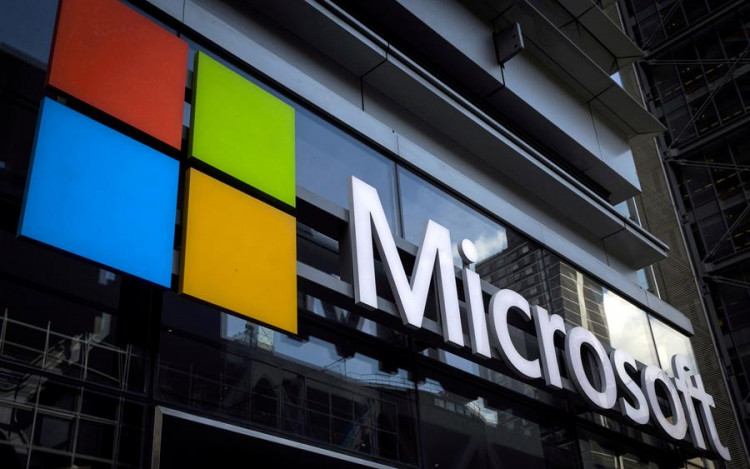Microsoft Corp. delivered a robust performance in its fiscal first-quarter earnings, surpassing Wall Street's expectations, primarily driven by its Azure cloud growth and a strategic focus on artificial intelligence (AI). The results underscore the tech giant's continued dominance in the cloud sector and its ability to innovate and adapt to the rapidly changing technological landscape.
Microsoft's shares jumped as much as 5% in extended trading on Tuesday after the software maker reported earnings of $2.99 per share, compared to the expected $2.65 per share, as per LSEG, formerly known as Refinitiv. The company's revenue stood at $56.52 billion, outpacing the anticipated $54.50 billion. This marked a 13% year-over-year growth, with net income surging by 27% to reach $22.29 billion.
A significant contributor to this growth was Microsoft's Intelligent Cloud segment, which raked in $24.26 billion in revenue, a 19% increase. This was notably higher than the $23.49 billion consensus among analysts surveyed by StreetAccount. The segment encompasses a range of services, including the Azure public cloud, SQL Server, Windows Server, Visual Studio, Nuance, GitHub, and enterprise services.
Azure, in particular, witnessed a 29% revenue jump during the quarter, surpassing the 26% consensus among analysts. In a statement, Microsoft CEO Satya Nadella highlighted the company's commitment to helping customers maximize value from their digital spend using the Microsoft Cloud. He emphasized, "We are rapidly infusing AI across every layer of the tech stack and for every role and business process to drive productivity gains for our customers."
The Productivity and Business Processes unit, which houses Microsoft 365 productivity app subscriptions, LinkedIn, and Dynamics enterprise software, reported a revenue of $18.59 billion, marking a 13% increase. This was above StreetAccount's $18.19 billion consensus. Furthermore, the More Personal Computing segment, which includes Windows, Xbox, Bing, and Surface, contributed $13.67 billion in revenue, a 3% uptick and surpassing the $12.85 billion consensus.
Microsoft's recent endeavors in AI have been evident, with the company announcing a colossal $10 billion investment in ChatGPT developer OpenAI and launching AI-enhanced versions of its Bing search engine and Edge browser. The company's Copilot apps, powered by generative AI, have been introduced for Outlook, Windows 11, and Microsoft 365, offering functionalities like email summarization, document drafting assistance, and insights into Windows 11 features.
In addition to its AI initiatives, Microsoft recently concluded its landmark $68.7 billion acquisition of video game publisher Activision Blizzard, marking the company's largest deal to date. This acquisition positions Microsoft as the third-largest video game company globally in terms of revenue, trailing only Tencent and Sony. However, the Federal Trade Commission's potential antitrust concerns loom over this merger.
As Microsoft continues its growth trajectory, the company's stock has surged by 38% this year, outperforming the S&P 500 index, which has seen an 11% increase over the same period.






